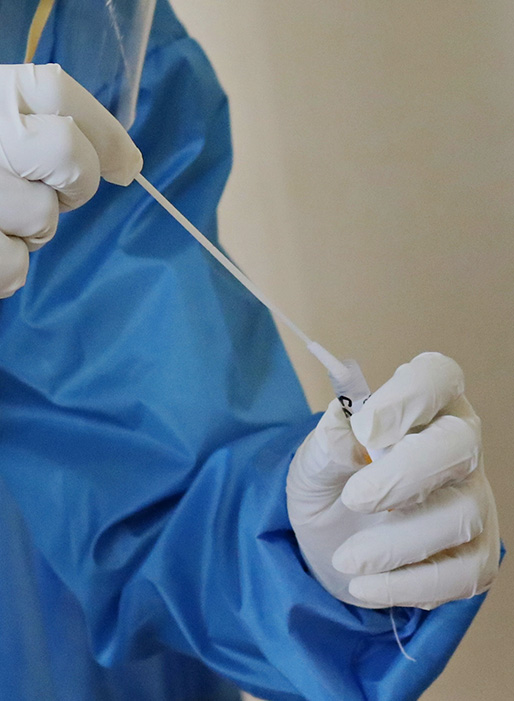Evacuations from Israel and High-Risk Locations Call +44 (0)1202 308810 or Contact Us →

Measles Cases on the Rise in France
8 May 2018
Health officials in France have reported that nearly 2,000 cases of measles have occurred in the country between 01 January 2018 and the end of April 2018. While 80 Departments reported at least one case of the disease, around 50 per cent of cases have been reported in Gironde and Vienne of the Nouvelle-Aquitaine region, where the situation has become an epidemic.
Key Points
- Nearly 2000 cases of measles have been reported in France in 2018.
- Gironde and Vienne in Nouvelle-Aquitaine are the most impacted Departments in the country, with 80 Departments reporting at least one case.
- No Department in France has reached the 95 per cent vaccination rate recommended by the World Health Organisation (WHO).
SITUATIONAL SUMMARY
Health: Health officials in France have reported that nearly 2,000 cases of measles have occurred in the country between 01 January 2018 and the end of April 2018. While 80 Departments reported at least one case of the disease, around 50 per cent of cases have been reported in Gironde and Vienne of the Nouvelle-Aquitaine region, where the situation has become an epidemic.
21 per cent of reported cases in the current outbreak have led to hospitalisation and 88 per cent of cases occurred in unvaccinated or inadequately vaccinated individuals. At least one death has been directly linked to the outbreak, that of a 32-year-old woman in the town of Poitiers, Vienne.
Health officials fear that the current outbreak may progress into a nationwide epidemic which France experienced between 2008 and 2012. During that period, 24,000 cases were reported. Less than 400 cases of measles were reported per year between 2013 and 2015.
The dramatic rise in French measles cases mirrors regional trends. In 2017, cases of measles in Europe grew 400 per cent after a record low in 2016. More than 20,000 people were infected, and 35 killed by measles in 2017. The most significant European outbreaks were reported in Romania (5562 infections), Italy (5006), and Ukraine (4767) through 2017.
What is Measles?
Measles is a highly infectious viral condition which has the potential to become fatal; it is most common in young children and the infection usually clears in around a week to ten days. The symptoms of measles include:
- Cold-like ailments, such as a runny nose, sneezing, and a cough.
- Sore and red eyes which may be sensitive to light.
- A fever which may reach around 40o
- Small grey to white spots on the inside of the cheeks.
- Usually after the above, a red-brown blotchy rash will appear.
Once an individual has had measles or received a vaccination, they develop immunity. However, the disease can cause complications including lung and brain infections, which may be life-threatening.
Measles is transmitted by tiny liquid droplets which come out of the nose and mouth when an infected individual sneezes or coughs. These droplets are easily inhaled or can be contracted from infected surfaces, where the virus can live for several hours. People with measles remain infectious for about four days after the rash first appears.
Why the Increase?
The WHO has pointed to a number of number of reasons why the certain countries report significant outbreaks. Notably, “declines in overall routine immunization coverage, consistently low coverage among some marginalised groups, interruptions in vaccine supply, or underperforming disease surveillance systems.”
Experts suggest that people refusing the MMR (measles, mumps, and rubella) vaccination has significantly contributed to the problem. The vaccine continues to be linked to autism in the popular imagination, despite research widely discrediting and debunking this belief. In France, there is a vocal ‘anti-vax movement’ which has encouraged French parents not to immunise their children. While vaccines are usually given in two doses to very young children, it can still be given to adults and children who have not been fully immunised before.
What is Being Done to Control the Rise of Measles?
Across Europe, a number of measures have been or are being put into place to help control measles outbreak, with the WHO working with national health departments. These include “raising public awareness, immunising health-care professionals and other adults at particular risk, addressing challenges in access, and improving supply planning and logistics.”
Beginning this year, French authorities made eight new vaccinations, including measles, obligatory for all children born since 01 January.
The WHO advises that to prevent outbreaks and ensure what is known as ‘herd immunity’, upwards of 95 per cent of the population should be immunised; no department of France can boast this level of vaccination. In the Nouvelle-Aquitaine region, reports suggest that between only 70 and 81 per cent of people are vaccinated for measles.
SECURITY ADVICE
HealthModerateAll individuals who have had the MMR vaccination or have previously contracted measles are considered safe from an infection. If you are concerned about an infection, ensure that you have had this vaccination. If you contract the disease, there are a number of steps which should be undertaken to treat it and prevent it spreading.
For most travel to France, Solace Global would not advised clients of the need for enhanced security or medical measures, depending on traveller profile. Travellers are advised to use travel-tracking technology with an intelligence feed for all travel in the continent. This should enable a traveller to be alerted of any security updates within their vicinity, and to update others of their movements in case of an emergency.